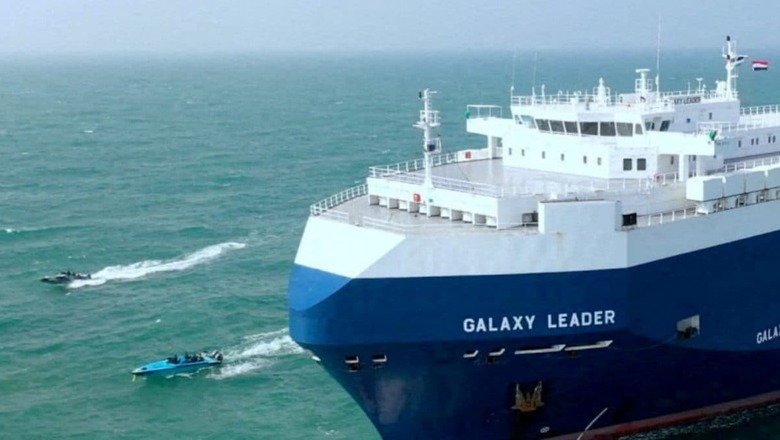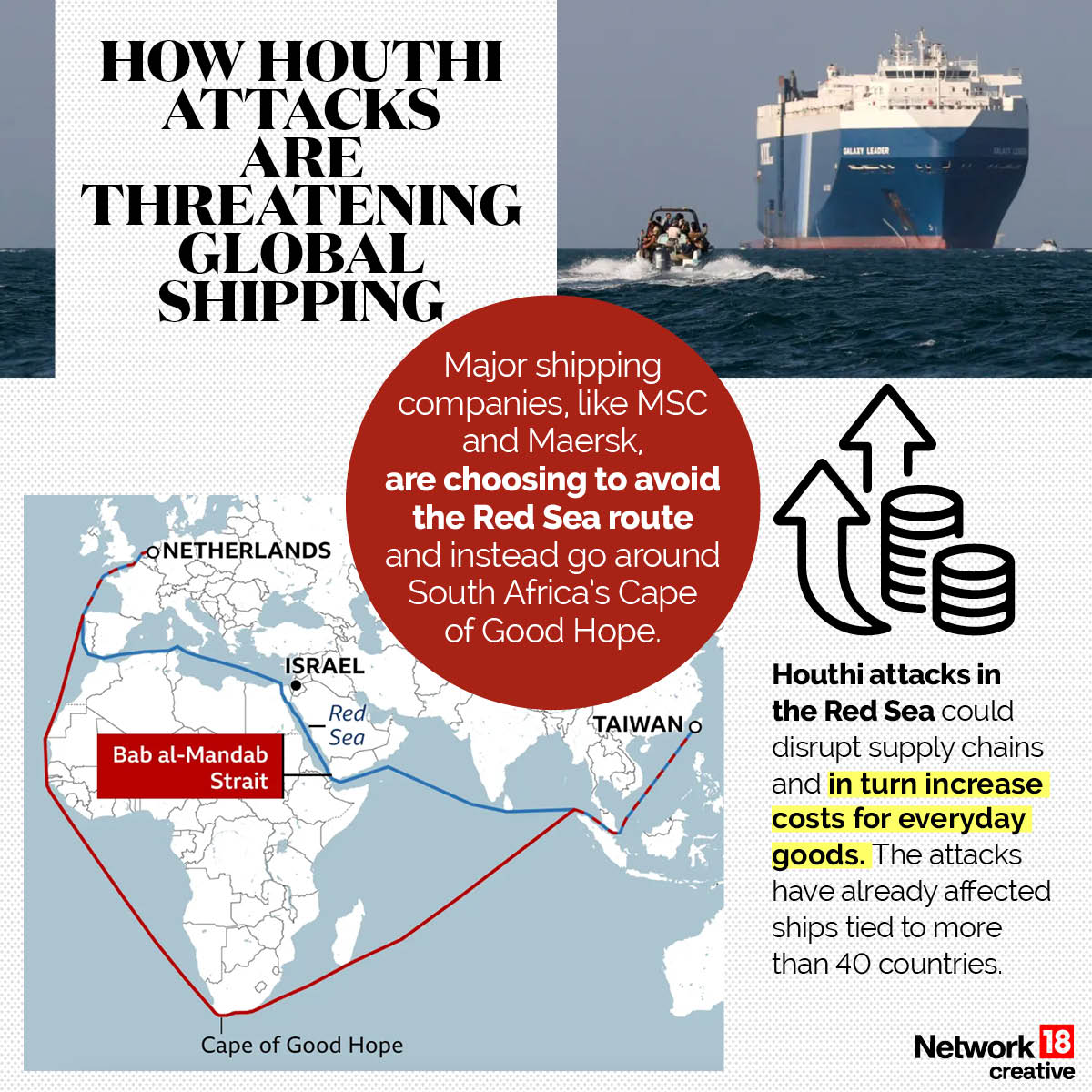
views
Shipping in the Red Sea has become perilous since October when Houthi militias in Yemen said that they will attack ships destined towards Israel or cargo ships carrying an Israeli flag.
The rebels said that these actions are being taken to show solidarity with Palestinians who have been caught in the conflict between Israel and Hamas and to support Hamas’ fight against Israel.
This could also be a tactic to make the world focus on Yemen’s Houthis and earn them legitimacy while also pressuring Israel to stop its siege of Gaza.
Houthis have attacked several container ships prompting the US, UK and several other allied nations to launch Operation Prosperity Guardian under which the US and UK carried a round of airstrikes on Thursday to deter the Houthis from attacking commercial shipping. More strikes were conducted on Friday targeting their weapons and drone caches and their radar systems.
These actions, however, have not assured shipping companies that move goods on one of the world’s busiest trade routes.
The Suez Canal is the quickest sea route between Asia and Europe and more than 17,000 ships cross the Suez Canal every year. According to Lloyd’s List and BBC, 12% of annual global trade passes through the Red Sea which is $1 trillion worth of goods.
What Options Shipping Companies Have and Will it Affect You?
Shipping companies can send their ships through the Red Sea if they are ready to risk attacks by the Houthi militia, like the Maersk Hangzhou, a Singapore-flagged, Denmark-owned and operated container vessel en route from Singapore to Port Suez in Egypt, which was struck by a missile while transiting the Bab el-Mandeb Strait.

This forced Maersk to suspend passage through a key Red Sea strait “until further notice”. Mediterranean Shipping Company (MSC), Torm, Hapag-Lloyd and the oil company BP are among the ones who are diverting vessels away from the Red Sea.
These attacks indicate that ‘supply chains are being weaponized’, Marco Forgione, director general of the Institute of Export and International Trade, told the New York Times, adding that the problems in the Red Sea may have not caused supply chains to snag like it did during the pandemic but indicated that a similar situation could arise once more.

A report by the BBC said that Houthi attacks on ships transiting the Red Sea increased 500% between November and December which forced major shipping companies, like Maersk, to suspend shipping on those lanes and take other routes which has increased insurance costs ten-fold the normal amount.
This means to avoid Houthis these ships may have to sail an extra 4,000 miles around Africa and burn considerable fuel. The companies do not like the options they have and analysts are guessing that neither will the consumers who may have to ultimately bear the costs of the conflict as prices of goods will rise.
Shipping Companies Take Measures to Avoid Houthis
Flexiport, logistics tech company, told the New York Times that 389 container vessels, accounting for over a fifth of global container capacity, diverted from the Suez already and added that many others were following suit.
These options may suit shipping giants but ships headed to or coming from ports from countries bordering the Red Sea or vessels carrying 5,000 or fewer containers or vessels who have a tighter budget may not be able to take the longer route, forcing them to face the Houthis.
A report by Bloomberg said five vessels transiting the Red Sea are using their signals to say they have links to China, hoping that such a measure will help them avoid Houthi attacks. The report further added that each ship is indicating “all Chinese crew” in the destination field. Under normal circumstances, they would have just signalled their destination. The report said two are presently in the Red Sea, two have successfully passed through the trouble-filled waterway en route to Asia and a fifth appeared to be heading towards the Gulf of Aden.
A separate report by news agency Reuters said that French forces are escorting ships with French interests through the Red Sea region, citing Rear-Admiral Emmanuel Slaars, the joint commander of French forces in the area.
Will There Be Any Let Up
The Houthis have said they will not stop attacking ships headed toward Israel. Though one of their spokespersons said international shipping is safe but since the Houthis in November hijacked the car carrier, the Galaxy Leader, and kidnapped 5-member crew, mainly Filipinos, and are yet to release them, it is unlikely that shipping companies will take a bet on the Red Sea passage.
A separate report by Sky News said that two suspicious small boats followed a merchant vessel on Saturday in an area 80 nautical miles southeast of Aden in Yemen, citing the United Kingdom Maritime Trade Operations (UKMTO). The UKMTO said it received a report of a missile fired towards a vessel in a similar area but there was no damage reported.



















Comments
0 comment